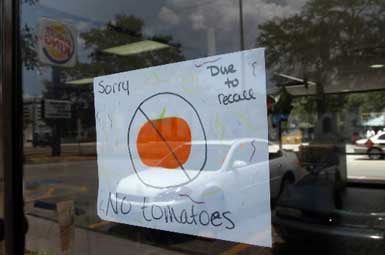A news team in South Carolina used a hidden camera to catch nine area grocery stores reselling meat that had been returned to the store by members of the news crew.
Nine other stores tested by the team did not put the returned meat back in the display case. These stores were concerned that once the meat was outside of their control, it could be deliberately contaminated or allowed to get too warm – as they should be.
The same is true for meat coming to a store for the first time. Smart retailers use suppliers they can trust based on those suppliers’ openness about handling procedures.
Toronto police are currently alerting the public that a truckload of chicken breasts was stolen last week and has since been repackaged and sold.
Police photographs show that the stickers on the new packages tell consumers to keep the chicken refrigerated. Nice touch.
Retailers should know that consumers are not the first line of defense against foodborne illness.
What happened to the product before it was sold to stores? Did the thieves take the steps necessary to reduce the microbial risks associated with transporting raw meat? Could they prove it?
Peanut Corp. of America epitomized a business whose sole concern was turning a profit. I’m sure a crime ring would be quite similar.
 So the big question is, did anybody ask?
So the big question is, did anybody ask?
Grocery stores who resell returned meat are taking the same risks as stores who sell meat from suppliers they know very little about.
It never hurts to ask questions.


 Growing up, my brother
Growing up, my brother 
 My bother Jesse (currently a third grader) found a hero in Spiderman.
My bother Jesse (currently a third grader) found a hero in Spiderman.
 In response, the Times published this letter from me:
In response, the Times published this letter from me: Now imagine it’s not just you and your family. It’s a restaurant, a store, even a really big store.
Now imagine it’s not just you and your family. It’s a restaurant, a store, even a really big store. .jpg)
